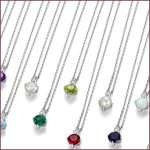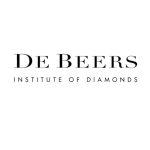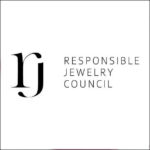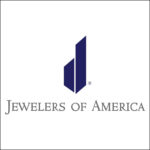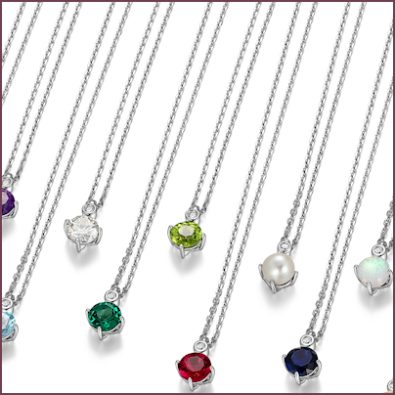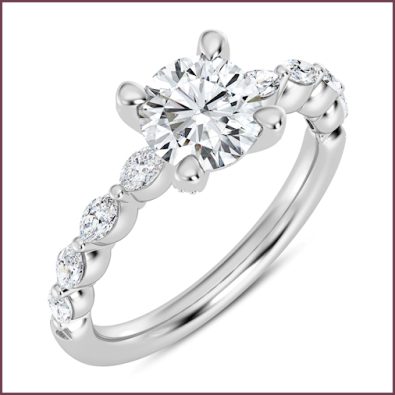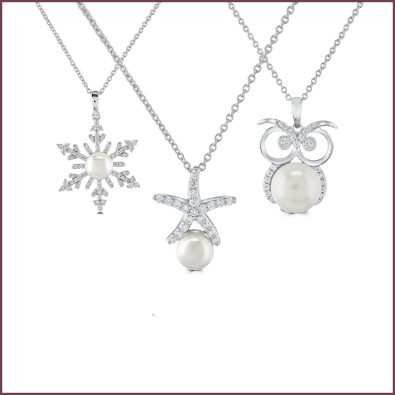Sustainability is Good Business
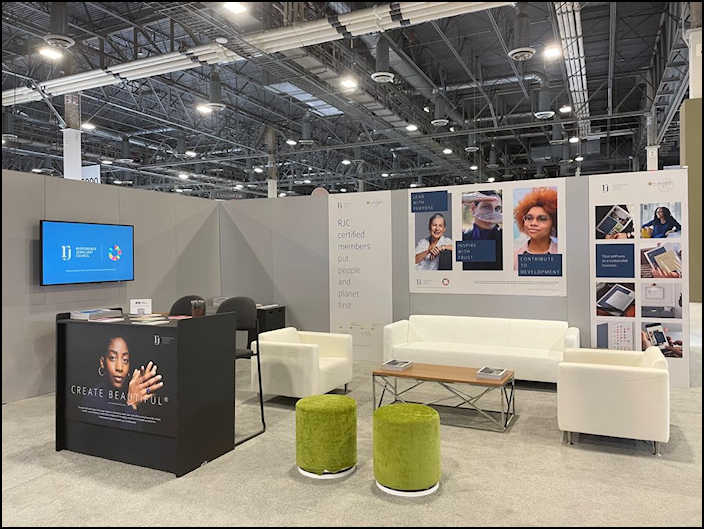
Companies that embrace diversity, inclusivity and equity in their organizations actually outpace their competitors by respecting the unique needs, perspectives and potential of all their team members.
The benefits are seen in higher revenue growth, greater readiness to innovate, increased ability to recruit diverse talent, and higher employee retention.
Signet has embraced this philosophy, and its CEO Virginia Drosos has been touting what North America’s largest retailer of diamond jewelry has been doing. In a brief recorded message aired during Martin Rapaport’s live State of the Diamond Industry keynote at JCK Las Vegas in August, she shared Signet’s status as a certified “Great Place to Work” company. The Oakland, California-based global authority on workplace culture has been helping businesses become great places to work for more than 30 years.

Drosos said that maintaining focus and articulating purpose has been critical to Signet’s success. “For us, our purpose is to inspire love. With diversity, equity and inclusion among our core values, we are committed to fostering a work environment where all employees feel respected and differences are celebrated.”
She cited that 75% of Signet’s more than 20,000 team members rate the jeweler as a great place to work, as compared to the national average of 59%.
She also mentioned that for the third consecutive year Signet earned inclusion in the Bloomberg Gender-Equality Index (GEI), one of only 380 companies across 11 sectors, representing 44 countries and regions. Signet is the only specialty jewelry retailer to be recognized on this prestigious list.
Today, women comprise 50% of Signet’s board of directors, up from 33% in 2017, Drosos shared. Women hold 42% of Signet’s senior management positions and 82% of its team members represent gender or ethnic diversity. The company is advancing ethnic diversity, too achieving a 44% increase in Black and African American representation at the director and above level.
“We’re making strides annually because we believe that companies like ours – and society, in general – can prosper by uniting people regardless of gender, gender identity, race, sexual orientation, age or ethnicity,” said Reginald Johnson, Chief Diversity Officer.
Studies show that diversity unlocks greater innovation and stronger business results, Drosos said, sharing that Signet had its best holiday results in nine years with same-store sales up nearly 6% year-over-year, underscoring its ability to pivot in challenging conditions.
 Sustainable Practices = Sustainable Business
Sustainable Practices = Sustainable Business
Drosos also mentioned that Signet is participating in the United Nations Global Compact, a call to companies to align their strategies and operations with universal principles related to human rights, labor, environment and anti-corruption, and to take actions that advance societal and sustainable development goals by 2030. Signet also will be a certified member of the Responsible Jewelry Council (RJC) by 2025.
Rapaport touted in his keynote address, something he underscores every year, that social responsibility is the only way the industry can succeed. “We need to work together more forcefully into the future or consumers won’t buy from us.”
RJC was exhibiting in The Plumb Club pavilion at the JCK Las Vegas Show, the first trade organization in 2019 to require its members to become RJC certified, and the first time RJC has exhibited at JCK. RJC was there to highlight the pivotal role of small businesses and retailers in deepening consumer trust in the jewelry and watch industry.
In TPC Pavilion, RJC provided sustainability and marketing tools and practical guidance, designed with a focus on removing industry barriers and increasing understanding of sustainability for all members — including Small Business Sustainability Toolkit, Retailer Sustainability Toolkit, and Communications Toolkit complete with press release templates, co-branded videos and posters, social media graphics, and an in-store nameplate.
“JCK and The Plumb Club offered us this platform to engage with industry stakeholders and channel discussions on the need to look at their business practices to support the five pillars of sustainable development – people, planet, prosperity, peace, and partnerships,” said David Bouffard, RJC Chair.
Working Together
Sustainability is about human dignity for all, and because the jewelry industry is one of beauty and emotions, it needs to work together to deliver positive impact on the ground, advocates Iris Van der Veken, executive director for RJC. “The time is now to accelerate action at all levels and every stage of the supply chain. This is the decade of trust and transparency, and we have a responsibility to contribute to the Sustainable Development Goals. This global agenda is about leaving no one behind.”

It is critical that the jewelry industry has a standardized universal code of practices that the retailer, consumer, and government can rely on to guarantee that these products are the most responsibly sourced and ethically produced in the marketplace, advocates Michael Lerche, Michael Lerche, President and COO of the New York-based Goldstar, past president of The Plumb Club.
As a founding and board member of RJC, Mark Hanna, CMO for the Richine Group, encourages all suppliers and retailers in the industry to become certified members of RJC. He reminds jewelers that younger consumers will find a product more enticing if it has documentation supporting that it has been sourced responsibility. He finds that social media has attracted more millennial and Gen Z consumers, who are more sensitive to sustainability issues.
Many studies have shown that more consumers would pay more for products that are responsibly sourced and sustainable, says Hanna, and more employees want their companies to have responsible and ethical business practices that demonstrate corporate citizenship.
 In fact, The Plumb Club Industry & Market Insights 2021report, which surveyed 1,000 U.S. jewelry consumers, found that 72% of respondents would be willing to pay more for a piece that was sustainably sourced, 26% “a great deal” more. In fact, 23% of respondents said that it would be a deal breaker for a piece of jewelry they really liked if it could not be verified sustainably sourced.
In fact, The Plumb Club Industry & Market Insights 2021report, which surveyed 1,000 U.S. jewelry consumers, found that 72% of respondents would be willing to pay more for a piece that was sustainably sourced, 26% “a great deal” more. In fact, 23% of respondents said that it would be a deal breaker for a piece of jewelry they really liked if it could not be verified sustainably sourced.
Hanna underscores that no business can escape these changing consumer expectations, nor should they want to, because responsible businesses perform better. “It’s not about sustainability practices for our companies, it’s about the sustainability of our companies.”
